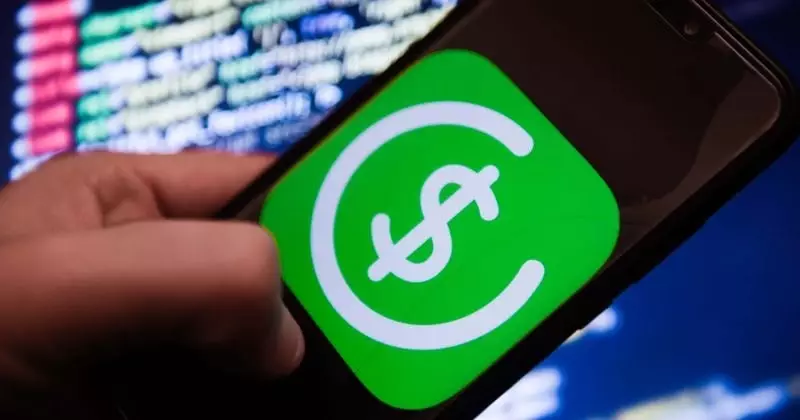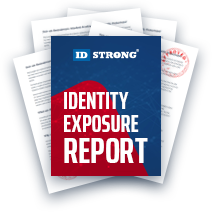Cash App Scams: What to do if You've Got Scammed Through Cash App
Table of Contents
- Cash App Fraud Prevention: How Does it Happen in The First Place?
- The Methods Used for Cash App Scams
- Customer Support Scams
- Phishing and Smishing Attacks
- Fake Item Scams
- Refund Payment Scams
- Charity Scams
- Cash Flipping Promises
- Romance Scams
- What to Do After Getting Scammed on a Cash App
- Cash App Fraud Protection
- By David Lukic
- Published: Oct 14, 2020
- Last Updated: Oct 20, 2023
Peer-to-peer payment apps are all the rage these days. People use them for swapping money back and forth between friends and family and sometimes for commercial use; this is where the trouble begins. Unfortunately, criminals have discovered unique ways to use these platforms to deceive victims and steal money from them, which started the emergence of Cash App Scams.
Some of the more popular platforms are Cash App, Venmo, Zelle, Apple Pay, Google Pay, and Facebook Payments. Although each works slightly differently, they all have policies against being used for commercial sales.
Cash App Fraud Prevention: How Does it Happen in The First Place?
One unfortunate victim Peppe Holmsten, put an ad on Craigslist to sell a fancy camera. He received a reply from a scammer, and then they can’t reach the scammer after the money's gone, it is crucial to understand the examples of Cash App scams for Cash App fraud prevention.
More Alarming Cash App Hacks
to Know

This past summer Chrysanthi Rausch was scammed in a terrifying scheme. She received a phone call in the middle of the day, and the woman claimed to be from her bank. She said she was calling about a fraud alert and needed to send her a text to verify her account. She received the text, read the 6-digit code, and that was it.
The scammers created a fake Zelle account in her name using the code from her bank, and they were able to access both her savings and checking accounts. They stole $1,600 before she even knew what hit her.
The payment app Zelle is tied in with dozens of banks, and therefore all the scammers needed was her validation code to hack into her bank account. Zelle boasted recently about transferring more than $119 billion last year; how much of that was stolen funds? Not only our Cash App software is in danger, but also prone to identity theft.
Some of the hackers even use spoofed phone calls to trick victims into thinking they are getting legitimate phone calls from their banks. This new type of Cash App scam is really scary stuff, and it is very important for all cash app consumers to know about these problems for Cash App fraud prevention.
The Methods Used for Cash App Scams
Experts advise users of any cash payment apps to read the warnings and use them only as directed.
There are warnings on both the Venmo and Zelle websites warning users to never send money to strangers using the apps. Scammers often pay using one of these apps, and then as soon as they receive the goods, they cancel the transaction before the recipient has time to transfer it out of their account and into their bank.
Customer Support Scams
Each cash app platform has some form of customer support line in place. These services are helpful when you get locked out of your account or need to change your deposit location. However, they are hard to reach, and because of that, they're easy to impersonate.
Imagine that you've lost access to your account and need the money quickly. You're desperate and need help getting in touch with customer service. This is a regular occurrence as cash app hotlines often keep inconvenient hours. For example, CashApp only has a call service available on business days.
Thieves take advantage of user desperation and pretend to be a platform support team member. They bait people into calling their number by creating fake websites that pop up through a Google search.
The "customer support" representative will then try to steal the user's login credentials. Standard methods include getting targets to download a screen-sharing app or outright asking for the information. Once they have the account details, they'll use the account's existing balance or credit to make purchases for themselves.
Phishing and Smishing Attacks
Nobody likes getting bombarded with notifications and warnings. It's even more stressful when these reminders are finance related.
Phishing and smishing attacks are similar to customer support scams, except the criminals are contacting you instead. They use the information on your profile to find your contact information and then impersonate a support member from the platform.
Their messages will include buzzwords like "Immediate Action Required" or "Suspicious Account Activity." These stressful warnings push users into making hasty decisions and handing over their account credentials. Scammers will then use the account to make personal purchases or transfer money to themselves.
Fake Item Scams
Today, many people think peer-to-peer payments are more secure than they are. After all, they've used the service with their friends countless times. This mistaken belief causes people to entrust large purchases to an app.
Criminals will enter transactions for high-price items like sublets, pet sales, or vehicles. This is because the possible payouts are larger, and cash apps don't ensure buyer protection.
They'll create listings, including "proof" of ownership, on popular online shopping services like Craigslist and Facebook Marketplace. Experienced scammers may even try to haggle the price or extend the process to raise their legitimacy.
Once the victim has sent over the money, whether the total amount or a down payment, the other party will delete their account and disappear.
Refund Payment Scams
The hardest thing to deal with is getting punished for being a good person. This is what happens in refund payment scams.
Scammers create a cash app account and link it to a stolen credit card or bank account. They'll then send money to random users and ask them to transfer the amount back to them. Of course, you won't get the money they "mistakenly" sent you because the original owner of the stolen card will have canceled the account.
So, the real loser in this situation is the unsuspecting cash app user who's just trying to do the right thing. The refund money is drawn from their account because it can't be pulled from the now invalid, stolen credit card.
Charity Scams
Another malicious scam takes advantage of people's desire to help the less fortunate. Scammers create fake charities and advertise them to cash app users. People are more willing to donate small amounts because of how easy it is to transfer money on these platforms.
Some scams go as far as creating the skeleton of a charity to appear more legitimate. This means developing a professional website, setting up a custom phone number, and even posting fake testimonials of people they've helped.
Remember that donating to a charity should come after some self-reflection. Not only should you consider if you are in a position to contribute, but you need to do deep research to know exactly where your money is going.
Cash Flipping Promises
This particular scam has been played to death and isn't limited to cash apps. An investor or entrepreneur will ask you for a sum of money and promise to increase it by a certain amount.
They ask you for investments of $10 or $20. The modest amount keeps you from weighing the risks and rewards too heavily and makes you more likely to buy in. Ambitious scammers may even send you back money once or twice. A one-time success entices you into making more significant investments they can run away with.
However, this money will come from other people's investments rather than any legitimately generated money. Tactics like this are commonly referred to as "Pyramid" schemes.
Romance Scams
Online dating is hardly a new idea. It's so common that a reported 20 percent of new relationships begin through a dating app or website.
Romance scammers leverage this trend to fool people into sending them money or revealing personal information. They create fake profiles (usually under the guise of a woman) and court their victim over a short time.
After earning enough trust, the scammer fabricates an emergency and asks their target for help. This usually comes in the form of sending them money over some cash application. Once the scammer gets what they want, they'll delete the account and ghost the victim.
What to Do After Getting Scammed on a Cash App

The first step after getting scammed is to try and contact the other party. It's possible that an honest mistake was made, and they'll refund your money. However, if you suspect you've been scammed, you probably have been.
Your most reliable course of action is to check the payment status of your transaction. If the seller hasn't accepted payment, you have time to cancel the deal, and it'll be like nothing happened. There are two problems with this:
Scammers are ridiculously quick to accept payments.
Victims often don't realize they've been scammed for a long time.
You'll need to step outside the platform if your payment has been processed. Most cash applications don't offer buyer protection and will do very little to get you a refund.
However, you can contact your bank for a chargeback. This is a demand to a bank or creditor for a refund on a fraudulent transaction. Third parties like CashApp, Venmo, and PayPal must comply with chargeback orders from a connected bank.
Most importantly, never trust the information that comes through an email. Always log into your eBay or PayPal account and verify payments and fees before you ship anything.
Be on the lookout for spoofed emails and examine the sender’s email address to find out where it really came from.
Report these and other scams to PayPal so they can investigate and catch these criminals.
Cash App Fraud Protection
Some other tips for keeping your money safe when using these types of cash transfer apps are:
- Always secure the apps via a PIN code or some other security measure in case your phone gets stolen.
- Read the user agreement to make sure you aren’t violating any policies.
- Turn on two-factor authentication when available.
- Only use the app with people you know well.
- Be careful of vendors who require you to use payment apps like Zelle, Venmo, and Cash App.
Always be on the lookout for scams, data breaches and things that sound good but also a little fishy.



















































































































